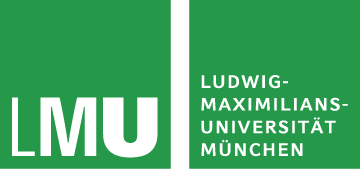Tuberculosis diagnostics
Background
Mycobacteria are slow-growing bacteria whose cultural cultivation requires special conditions. Mycobacteria include the tuberculosis pathogens (M. tuberculosis, M. bovis, M. caprae, M. africanum, M. microti, M. canetii, M. pinnipedii), which are grouped together as the Mycobacterium tuberculosis complex, as well as more than 100 other mycobacterial species that are widely distributed in the environment. The tuberculosis laboratory at the Max von Pettenkofer Institute offers tests for the detection of the Mycobacterium tuberculosis complex as well as atypical mycobacteria. The pathogen is usually detected from sputum, bronchial secretion or tracheal secretion, but is also possible from gastric juice, urine, pleural exudate, cerebrospinal fluid and other puncture samples or biopsy samples.
For rapid clarification of infectivity, a microscopic examination for acid-fast rods (Ziehl-Neelsen stain) should always be carried out in cases of suspected pulmonary tuberculosis. About 10^4 germs/ml must be present to obtain a positive result, and a reliable differentiation between tuberculosis bacteria and environmental mycobacteria is not possible. Therefore, it is always necessary to do a culture as well. For the rapid diagnosis of Mycobacterium tuberculosis complex from patient samples, a molecular rapid detection by PCR is available (result is available within 1-2 working days). If the result is negative, however, infection with mycobacteria cannot be ruled out. After successful treatment of tuberculosis, DNA can sometimes still be detected after a year. At the Max von Pettenkofer Institute, a combination of liquid and solid media is used after decontamination of the test material. By using a liquid medium with indicators for bacterial growth, the detection time is reduced to 1 – 2 weeks. However, the cultures are incubated for up to 6 weeks (liquid media) to exclude delayed growth.
Non-tuberculous mycobacteria can also be detected culturally in our laboratory. As these are increasingly isolated, especially in immunocompromised or cystic fibrosis patients, reliable and rapid detection is also an important part of our diagnostics. Resistance tests for non-tuberculous mycobacteria are not part of our range of services. In this case, please contact the National Reference Centre for Mycobacteria in Borstel (Prof. Dr. med. Florian Maurer; Nat. Reference Centre Tel: 04537 – 188 – 2110). Reference is made to the ATS – Guidelines for the Treatment of Non-Tuberculous Mycobacterial Infections of the American Thoracic Society and the recommendations of the DZK – Central Committee for the Control of Tuberculosis.
If you have any other questions, you can reach us at the following telephone number: Tuberculosis Laboratory: +49 89 2180-72844
Range of services
- Microscopic detection of acid-fast rods
- Culture cultivation of mycobacteria with liquid and solid culture media
- Detection of Mycobacterium tuberculosis complex with nucleic acid amplification methods
- Differentiation of mycobacteria with conventional methods and molecular biological techniques
- Susceptibility testing of Mycobacterium tuberculosis complex in liquid culture media
Useful information on diagnostics (briefly summarised)
A test of 3 sputums taken on consecutive days can exclude overt tuberculosis with a very high probability in the case of culturally negative findings.
If pulmonary tuberculosis is suspected: BAL, sputum (if overt TB) or gastric juice.
If extrapulmonary tuberculosis is suspected: Biopsy, punctate or cerebrospinal fluid.
Open tuberculosis is said to exist if there is at least one cultural detection of MTB complex from a material that is excreted by the body (e.g. urine or sputum).
Emergency preparation
A so-called native preparation without pre-enrichment for rapid diagnosis is not recommended, because the diagnostic sensitivity decreases significantly due to loss of patient material. If no acid-fast rods are detected in it, this by no means excludes a tuberculosis infection.
You can find more information in our List of Services.

